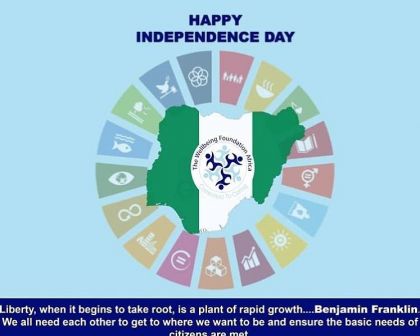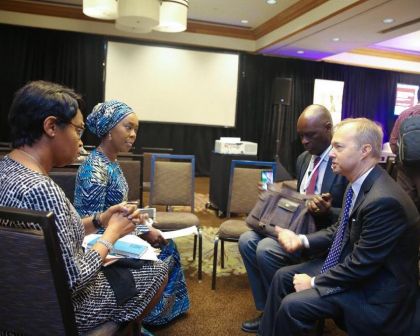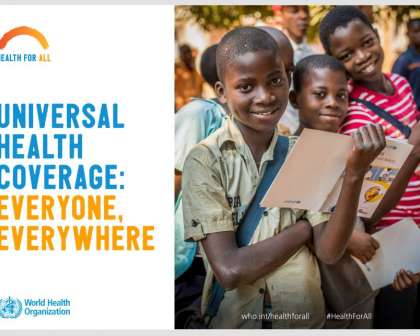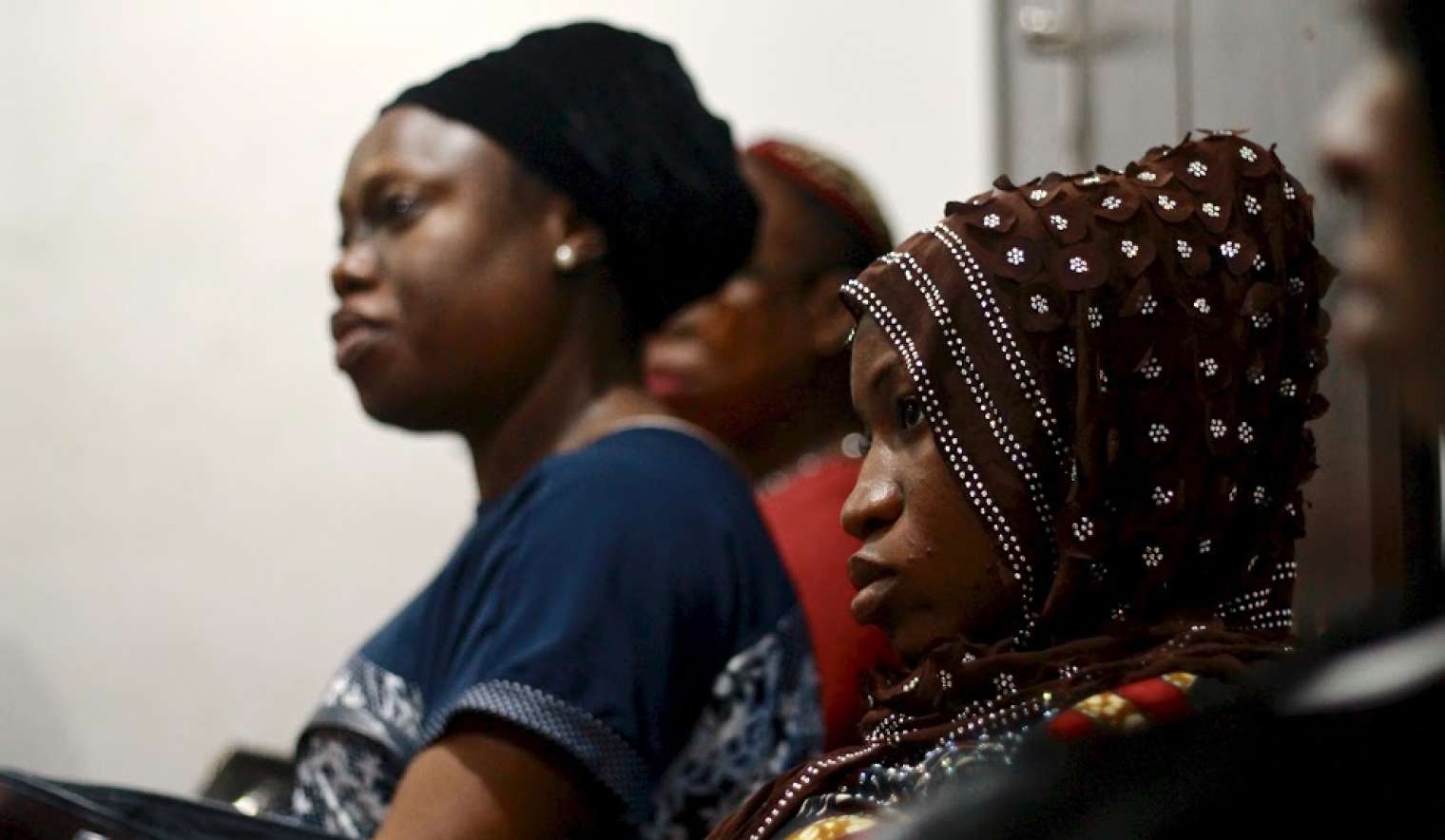
Maternal Monday — What Was Your Moment of Obligation?
As we embark on 2016 and the beginning of the Sustainable Development Goals, I would like to express my gratitude to all our partners and participants since we started in 2004 as a small NGO with the aim of ending deaths in childbirth in Nigeria through developing best practice models of health information delivery and vital statistics tools that could create behavioural change for the wellbeing of mothers, newborns and families. I must congratulate my Wellbeing Foundation Africa (WBFA) Team, for being named one of the Guardian Development Professionals Network’s NGO Heroes of 2015. From more than 100 nominations, WBFA were featured and celebrated for how we have brought global best practice models back to my home state of Kwara, including the development and distribution of WBFA Personal Health Records, and a partnership with Johnson & Johnson and the Liverpool School of Tropical Medicine to deliver emergency obstetric and newborn care ‘skills and drills’ training in the state could lower maternal mortality by up to 20%. I would like to join the Guardian in celebrating my team, and in their honour, I will be dedicating today’s Maternal Monday column to sharing their stories.
Much is known about my story - my journey as a reproductive, maternal, newborn, child, and adolescent health (RMNCAH) advocate began after I lost one of my first pair of twin daughters during my first childbirth, over twenty years ago. My experience was also my moment of obligation - I realised that this tragedy and grief is an unavoidable reality for so many women and children across the world. As we embark on the SDGs journey, it is important that we do not lose sight of the people, the lives, and the stories behind the targets - stories like mine, stories like yours, the stories of the mothers, and the stories of the medical workers, most especially the stories of the midwives deliver new lives, daily. Every Monday, WBFA’s #MaternalMonday campaign conducts online advocacy and health education centred on RMNCAH. Every Monday, we will now share your stories too - your individual journeys to advocacy, your experiences as a mother, child, health worker or ally, and your work on every aspect of RMNCAH. Simply use the hashtag #MaternalMonday to share your story via Facebook, Twitter, and Instagram - or even via our online Maternal Monday advocacy space. We hope that the #MaternalMonday space can become a platform for harmonising local and global ideas, programmes, actions, and successfully pioneering support for initiatives like Every Woman, Every Child, International Confederation of Midwives, World Association of Girl Guides and Scouts, Rheumatic Heart Disease, family planning, stillbirths, Girls, Not Brides, and more.
Here are the #MaternalMonday stories of my WBFA team!
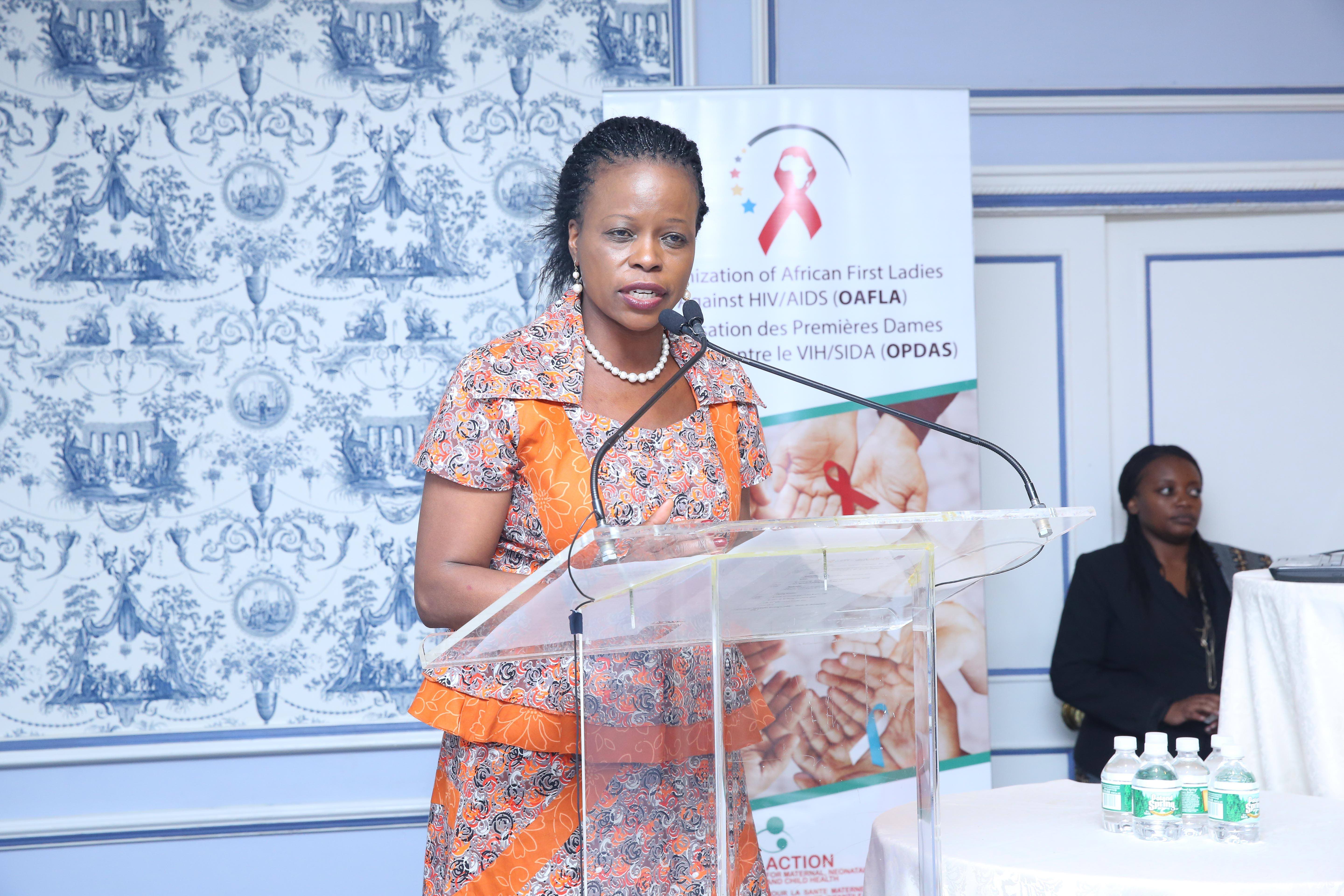
Felicity Ukoko, Head of Programmes and Adocacy, Wellbeing Foundation Africa
As a midwife working in the United Kingdom’s National Health Service (NHS) for over twenty years, I feel acutely the loss of a baby being born too soon and leaving the world too early. Working closely with mothers, I have - like many midwives - developed bonds with women and their families and witnessing their pain following negative health outcomes such as a preterm birth was always difficult for to handle. Driven by my passion and experience as a midwife, in March 2015, I joined the Wellbeing Foundation Africa (WBFA) as the Head of Programmes and Advocacy to develop initiatives that can save the lives of mothers and babies across the African continent. It is in this role that I am proud to announce that I have been appointed as the representative for Nigeria on the United Nations’ Every Newborn Action Plan’s Global Public-Private Partnership to Prevent Preterm Birth’s Global Steering Committee. Joining this committee enables the WBFA and I to advocate for mothers and premature babies, and help prevent preterm births on a global scale.
I am honoured to work at an organisation that has placed midwifery and midwives at the heart of its programming. From the development of an antenatal education programme that can be delivered by skilled midwives in communities across sub-Saharan Africa, to bringing midwives together for an upcoming International Day of the Midwife conference, and reinvigorating the Baby Friendly Initiative to leverage the power of midwives to encourage the uptake of breastfeeding in Nigeria. Over the next few years, I am sure we will meet our obligations to Nigerian mothers and reach my dream of dedicated birthing centres across the nation.
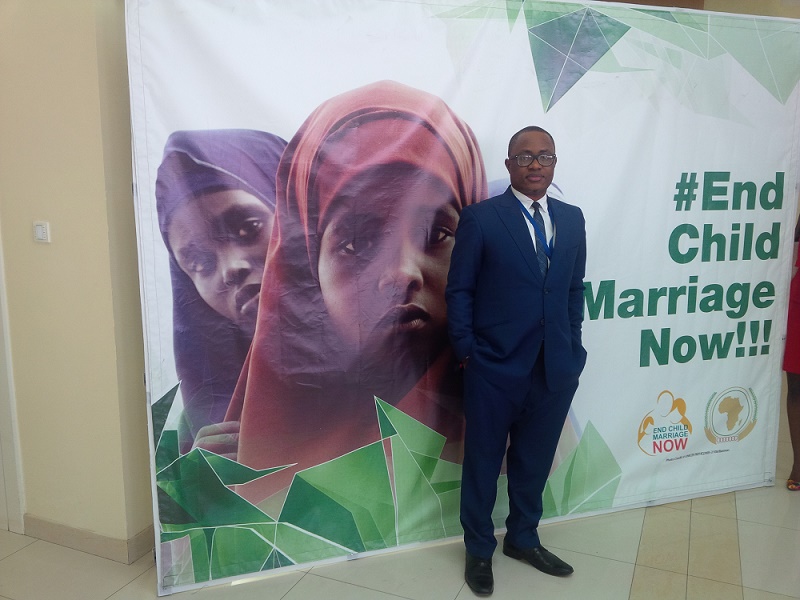
Dr Luther-King Fasehun, Nigeria Country Director
My moment of obligation came in New York in December 2013, as I noticed I was the only Nigerian in the room at a World Health Organisation and UNICEF gathering of global stakeholders to chart a way forward in the prevention of newborn deaths and ending stillbirths. I felt obliged to raise my voice for the women and families in the slums of sub-Saharan Africa; to ensure that the realities of the challenges that healthcare workers face in preventing peri-natal mortality are captured in the pre-final draft of the Every Newborn Action Plan (ENAP); and to ensure that the Wellbeing Foundation Africa (WBFA) continues to build on its advocacy to ensure that the improvement of care around the time of birth retains a position of primal importance in our work.
This led to WBFA playing a crucial role in the Advocacy and Communications Working Group of the ENAP Steering Committee. Alongside Save the Children, we hosted a Nigeria country consultation on the finalisation of the ENAP and H.E. Mrs Toyin Saraki, Founder-President of WBFA was inaugurated as the Save the Children Newborn Health Champion for Nigeria. Since WBFA’s participation in ENAP’s launch in June 2014, the world has witnessed national launches in Nigeria, Ghana, India and several other countries. Further, we are excited that the prevention of newborn deaths and stillbirths are captured in the Sustainable Development Goals (SDGs), and WBFA continues to be a major contributor to national and global policies in the field of health and development, including the State of the World’s Midwifery Report (2014) and the Roadmap for Measurement and Accountability in Health (2015). My membership of technical working groups of national interest, including the National Essential Medicines Coordinating Mechanism (NEMCM) and the National Child Health Technical Working Group, amongst others, have allowed me take my moment of obligation to the broader needs of our communities, including through a strategic communications partnership to eliminate Ebola fever and Lassa fever.
Rachel Firth, Head of Partnerships and Strategy
Having worked with smaller NGOS for a number of years I have always understood the significant impact that smaller organisations like Wellbeing Foundation Africa can have in international development due to their wealth of knowledge and expertise in key areas. The struggle was always to make these NGOS and their work visible, in the shadows of larger international development organisations working in the same field and how to scale up effective programmes locally. I realised that instead of competing for space and recognition, partnerships between local NGOs and larger INGOS was the way to ensure impact and enable scaling.
Partnerships such as that between WBFA, Johnson & Johnson and the Liverpool School of Tropical Medicine to deliver Emergency Obstetric and Newborn Care training in Kwara Strate, Nigeria, bring together the strengths of different organisations. The local knowledge and expertise of WBFA and the formalised processes, procedures and scope of work that characterise larger INGOS have resulted in a truly effective programme and a stronger combined capacity to achieve mutual goals.
Though my experience in forging partnerships with the private sector, I have been able to incorporate a social enterprise approach to the development Wellbeing Universal Health - a social enterprise that will scale up access to innovative essential health interventions. Through this social enterprise, we can support early childhood nutrition through the provision of breastfeeding equipment and more!
Follow Toyin Ojora-Saraki on Twitter: www.twitter.com/ToyinSaraki
Share this Article

Toyin Ojora Saraki
Toyin Saraki is Founder-President of the Wellbeing Foundation Africa (WBF Africa), a pan-African maternal health and wellbeing charity. WBF Africa has become one of the most influential and active organisations in the area of maternal, newborn and child health (MNCH), working across sectors to deliver innovative solutions such as its flagship WBFA IMNCH Personal Health Record© and the MamaKit. WBF Africa goes beyond aid; it is dedicated to advocacy and the formation of best practices in health, education, women’s empowerment and social welfare. A qualified barrister, Toyin Saraki built a successful private sector career before dedicating the last 21 years to philanthropy.
Read More

